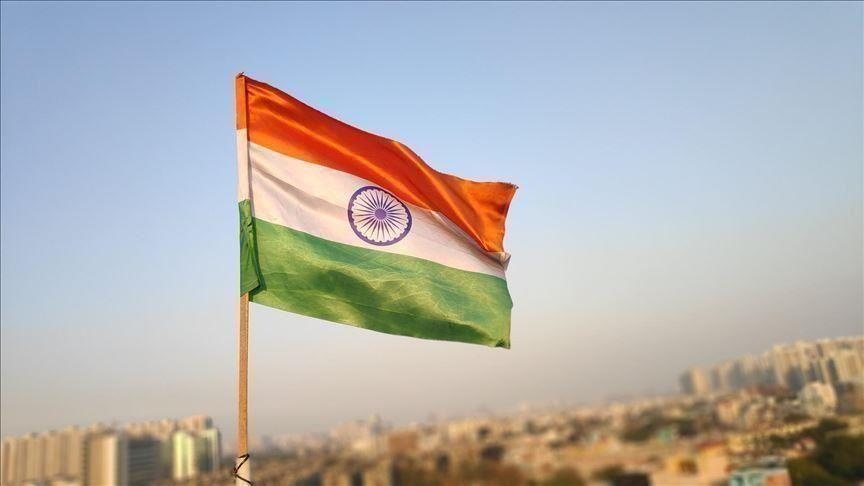

By Anadolu Agency
ANKARA
Prime Minister Narendra Modi and the ruling Bharatiya Janata Party (BJP) has sparked a political storm in India with a renewed push to enforce a Uniform Civil Code (UCC), a common set of personal laws for all, irrespective of their religious beliefs.
The proposal has drawn sharp criticism from activists and religious groups in India, particularly India’s 200-million-strong Muslim community, with some experts terming it a political ploy by Modi to consolidate Hindu votes ahead of the 2024 general election.
The government, however, remains adamant that the changes are necessary, with the vice president going as far as saying that any delays in enforcing the UCC will “be corrosive.”
The Law Commission of India (LCI), the government advisory body that is gathering public suggestions on the UCC, said it received an “overwhelming response” and extended the deadline for submissions until July 28.
The UCC idea has been around for decades but was always a divisive one in a country with many different communities who have their own faith and beliefs.
In a nutshell, the UCC means that all people, regardless of region or religion, would be subject to the same set of civil laws.
Presently in India, Hindus, Muslims, Christians and other tribal groups have their own personal laws for issues such as marriage, inheritance and other matters.
Openly advocating for the common code last month, Modi said India can no longer go on with separate laws for different people.
“If in one house, there is one law for one family member and another for another family member, can that house function? … How then can a country function with such a system?” he said at a BJP meeting in June.
The BJP mentioned the UCC in its election manifesto in 2019, vowing to implement the set of common personal laws, and has taken up the issue again with the next vote less than a year out.
‘Part of a political conspiracy’
Several groups have forcefully opposed the idea, while some experts see it as a political move aimed at mobilizing Hindu voters.
“Majoritarian morality must not supersede personal laws, religious freedom, and minority rights in the name of a code which remains an enigma,” the All India Muslim Personal Law Board, a representative body of Indian Muslims, said in its objections to the LCI.
Restarting the UCC debate is “part of a political conspiracy,” said Jamiat Ulama-i-Hind, India’s largest socioreligious Muslim organization, adding that it would violate the religious freedom and fundamental rights guaranteed to citizens in the constitution.
The Shiromani Gurudwara Prabandhak Committee, the governing body of all Sikh temples, warned that the UCC will hurt the distinct identity of minority communities in India.
In several states with large populations of tribal groups, there is alarm that the common code would dilute the special privileges afforded to them under the current constitution.
M R Shamshad, an Indian legal expert, told Anadolu that the UCC is less about justice and more about creating homogeneity.
“In different parts of the country, people realize that, step by step, everybody’s identity will be targeted by the mighty majoritarian Brahminical (upper caste Hindu) values,” he said.
Several political parties have also joined the chorus against the UCC, with the main opposition Congress rejecting the idea of uniform laws for all.
Legal aspects
Article of 44 of the Indian Constitution – one of the Directive Principles of State Policy – asserts that “the state shall endeavor to secure for the citizens a uniform civil code throughout the territory of India.”
However, Shamshad said the state still has “consider other different parts of the constitution, where different accommodations have been given to different communities on the basis of their religion, region, language, and gender.”
“The UCC can be implemented at some stage when the citizenry of this country is ready for it and it is acceptable to them. It cannot be imposed on them,” he asserted.
Through a reference in 2016, the Indian government tasked the LCI with addressing all issues related to the UCC.
In its consultation paper two years later, the LCI said: “This commission has … dealt with laws that are discriminatory, rather than providing a uniform civil code which is neither necessary nor desirable at this stage.”
It also mentioned that the UCC issue is “vast, and its potential repercussions, untested in India.”
Presently, only the state of Goa, a popular tourist destination on the western coast once under Portuguese colonial rule, has its own set of common laws, known as the Goa Civil Code.
‘UCC will unite India’
Apart from Modi, several BJP leaders have been vociferously advocating for the UCC.
The BJP-led government in Uttarakhand, a Himalayan state, formed a panel to draw up a draft, while several other states governed by the ruling party have also expressed their support.
Jagat Prakash Nadda, the current president of the BJP, said the party is working within the ambit of the constitution in its drive to implement the common code.
“Under the constitution, we are permitted and directed to implement the UCC. We will move towards it,” Nadda told local media in May.
Earlier this month, India’s Vice President Jagdeep Dhankhar asserted that the UCC “will unite” India.
“Any further delay in its implementation … will be corrosive for our values,” he said in a speech at a convocation ceremony.
We use cookies on our website to give you a better experience, improve performance, and for analytics. For more information, please see our Cookie Policy By clicking “Accept” you agree to our use of cookies.
Read More